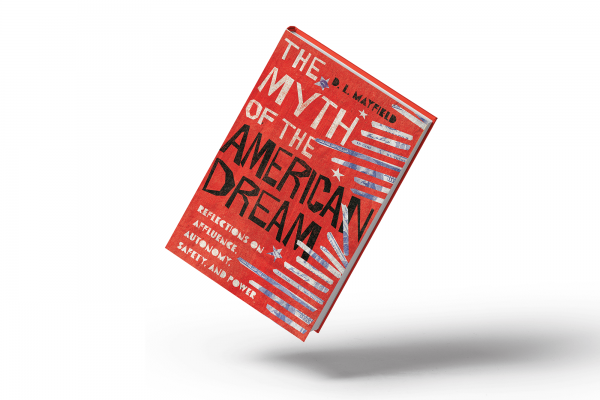IN HER LATEST book, writer D.L. Mayfield welcomes readers on a journey of seeing. This essay collection weaves an exploration of the desires embedded in the American Dream with stories of Mayfield’s own social justice conversion and portraits of her Portland neighborhood.
These narratives of how colonialism, capitalism, racism, and consumerism store themselves in privileged American hearts invite self-reflection. Mayfield challenges the American Dream’s toxic individualism, dividing the book into four themes: affluence, autonomy, safety, and power. “We do not care that people will suffer and die,” she writes, “due to our own desire for safety.”
Mayfield reflects on her own awakening and exposure to xenophobic faith communities, where she began to have “serious problems reconciling the Suffering Servant with a conservative religious agenda.” The text also walks her readers through the gentrification of her neighborhood and how her community is affected by travel bans, the U.S. education system, and other aspects of local and national politics.
It is important to note that The Myth of the American Dream is not meant to be a book of answers. These essays encourage observation, community, and connectedness by causing readers to notice and reflect. It is a narrative that discriminates between sympathy and service to examine a real vision of “neighbor-love.” Throughout the book we are led to ask, “Who pays for our myths?”
A Christian committed to a justice-oriented worldview will likely trace their own thoughts in Mayfield’s philosophy without finding anything radical. But this is an important work for those with an unexamined white American Christianity. Like Austin Channing Brown’s I’m Still Here and Soong-Chan Rah’s The Next Evangelicalism, this book challenges the white middle-class myth embedded in much of American Christianity.
For privileged Christians who only see the marginalized in headlines, these stories model relationship. We may think twice before we send our children to the city’s best private school. We may knock on our neighbors’ doors for a long overdue introduction. We may show up for town hall meetings or local elections. We may notice who is not there.
The book could not have been released in a timelier moment. As COVID-19 brings physical distance, this is a book that reminds the privileged to check in with their neighbors. It lifts up a worldview in which hoarding and our country’s broken health care system would be anathema. It brings us to a place where we must look beyond ourselves and our loved ones to a broader scope of community. “No matter where we live on this earth,” writes Mayfield, “we live with some sort of relationship to empire—and we need to figure out how to live as disciples of Christ right where we are.”

Got something to say about what you're reading? We value your feedback!







